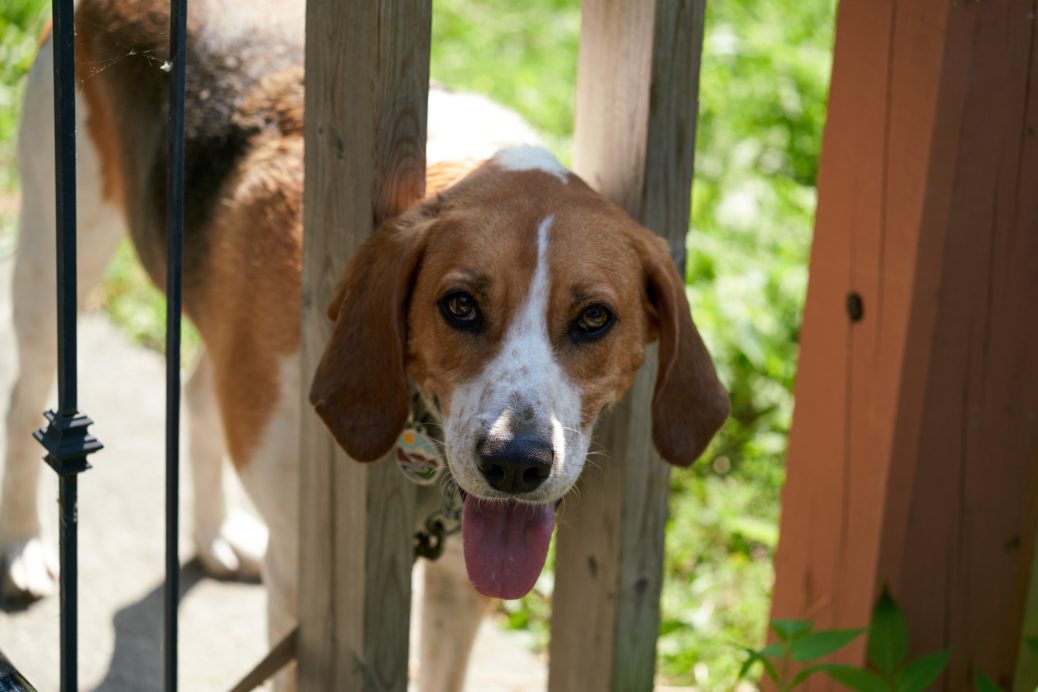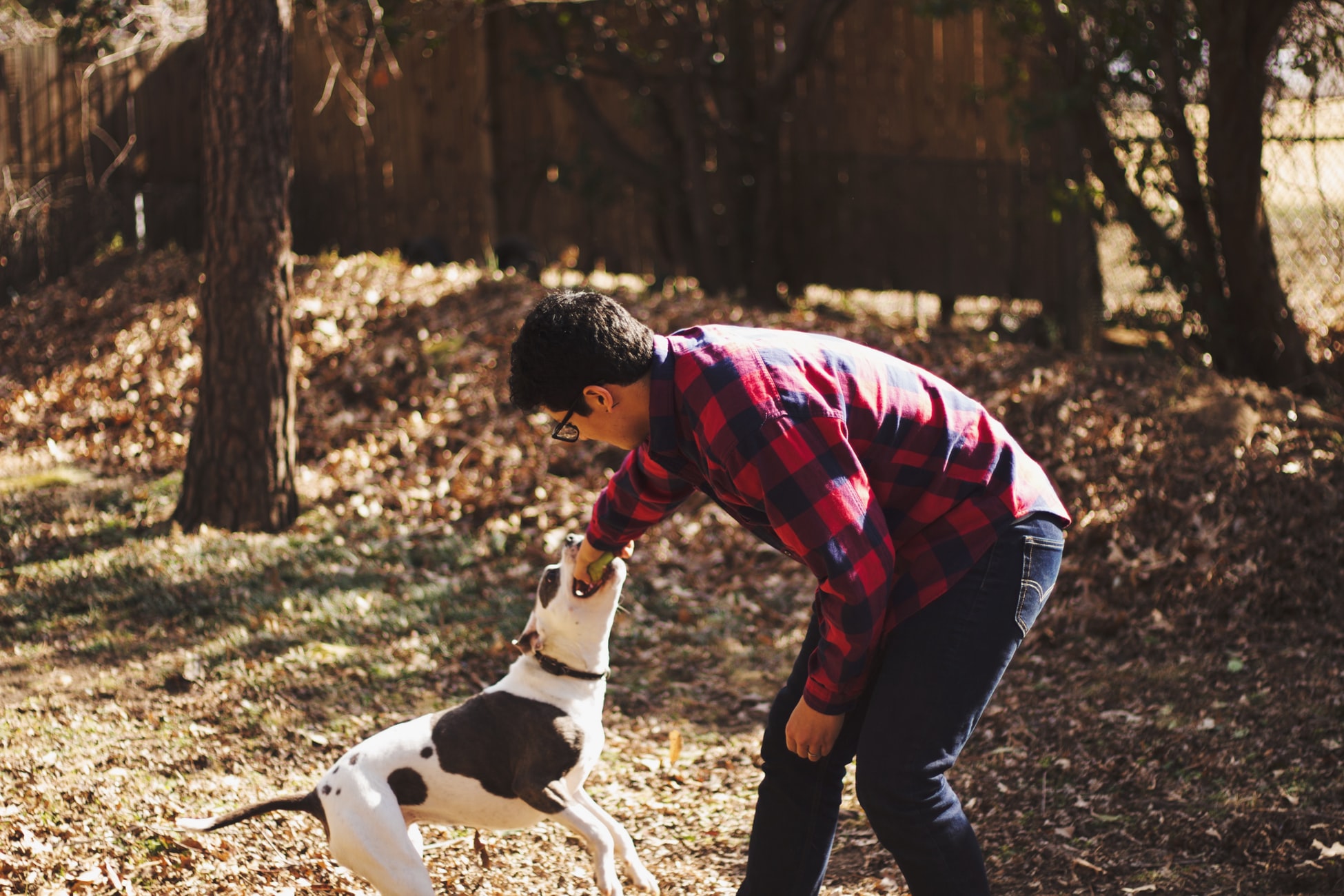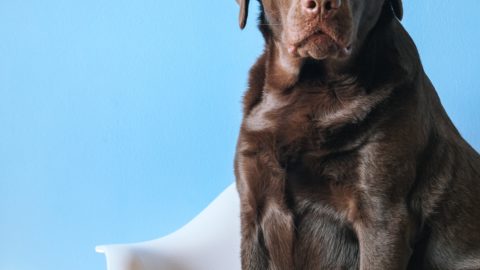Separation Anxiety: The Great Imitator, Part 3
By Meredith Stepita, DVM, DACVB
Another common symptom of separation anxiety is urination and/or defecation in the house. First, all medical causes (e.g., intestinal parasites, urinary tract infections, etc) need be ruled out by visiting your veterinarian. Then, other behavioral causes should be considered.
When it comes to urinating in the house, we must differentiate between urine marking (usually small amounts of urine on vertical surfaces) and inappropriate urination (usually large amounts of urine on horizontal surfaces). Urine marking can be due to hormonal causes in intact animals as well as anxiety and territorial behavior. Castration decreases marking in 70-80% of male dogs, regardless of the age of castration.1,2 Behavioral causes of inappropriate urination when home alone other than separation anxiety include other anxieties (e.g., noise phobia), management issues (e.g., home alone too long without access to a potty area), substrate preference (e.g., carpet), location preference, substrate or location aversion (e.g., rainy weather), inadequate or lapse in housetraining, and excitement urination. Except for the last cause, the same potential causes apply to inappropriate defecation.
The first important step in treatment is to prevent situations that elicit the behavior. For example, a territorial pet that marks when people and dogs pass the house can be prevented from watching these triggers through the window by pulling down the blinds or using wallpaper for windows (http://www.wallpaperforwindows.com/pc/home.asp). Also, dogs tend to mark new objects brought into the house, so keep these objects up and out of your dog’s reach. Urinating and defecating are normal behaviors, so avoid punishing your dog. Punishment will also likely make anxiety worse and your dog will not associate the punishment with the act of urinating or defecating since you are not home to punish your dog within 1 second of the behavior occurring. Make sure to clean elimination in the house with a combination enzymatic/bacterial cleaner to degrade the urine rather than simply covering up the smell (my favorite is Anti-Icky-Poo, http://www.antiickypoo.com/). A belly band, which is essentially a male diaper, can be used as a short-term solution, but if left on soaked with urine for hours it can cause a skin rash or infection. In some cases, anti-anxiety medication may be indicated.
Anxieties and phobias are treated with a specific desensitization and counter-conditioning protocols to change your dog’s emotional response to these triggers.
Management problems may be remedied by coming home at lunch to take your dog out for a potty break or hiring a dog walker.
If a location or substrate preference or aversion is the problem then re-training your dog to a more acceptable location or substrate, providing his desired substrate in a more acceptable location (e.g., sawdust outside), or eliminating the substrate your dog prefers in the unacceptable location (e.g., throw rug inside) may solve the problem.
If housetraining is the problem, here are some tips to help your dog be successful:
- Supervise your dog at ALL times, even keeping a leash on your dog and holding the leash when you are home. When not directly supervised your dog should be confined. Your dog should have one month without indoor accidents before allowing less supervised time.
- Take your dog outside to eliminate after waking up, coming out of his kennel, playing, eating, and right before bed. Initially take your dog outside every 1-2 hours and gradually increase the time between outdoor visits over several weeks to months as housetraining becomes successful.
- When you take your dog outside to eliminate pick a spot and wait there until your dog eliminates. Timing is important, so immediately after eliminating reward your dog with praise and a treat.
Dogs with excitement urination should be completely ignored when they are likely to urinate. This is usually a problem when people are present, but your dog could urinate due to excitement at your arrival home, before you open the door. Dogs often outgrow this behavior as they reach adulthood, but may need specific behavior modification protocols to treat this behavior problem if it continues past puppyhood.
This is not an exhaustive explanation of potential treatments for all of the causes for urine marking and inappropriate elimination, but it’s a good start. Stay tuned for the final blog in this series discussing treatment for separation anxiety.
***This article was written by Meredith Stepita, DVM DACVB and originally posted June 12, 2015 on Psychology Today’s Blog – Decoding your Pet.






